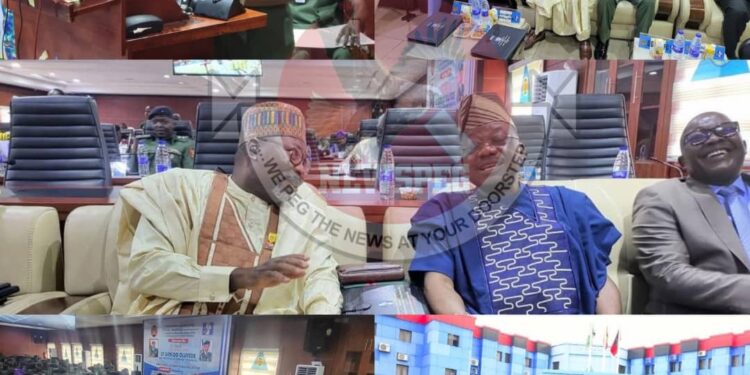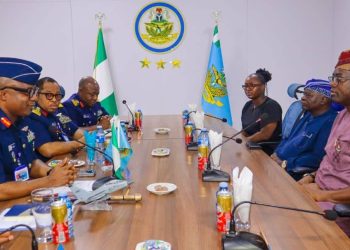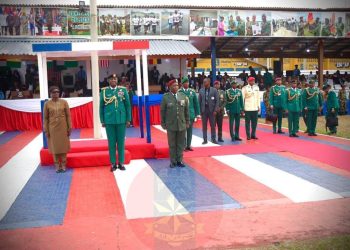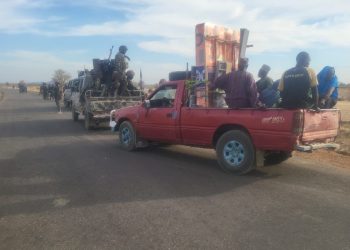By Nkechi Eze
In an era where the information space has become as critical as the battlefield, the Nigerian Army has once again reaffirmed its commitment to fostering a stronger, more transparent partnership with the media, recognizing communication as a strategic tool in shaping public perception, countering misinformation, and sustaining national morale.
Across the world, modern militaries have come to appreciate that wars are no longer fought with weapons alone, but also with words, narratives, and the power of public trust. For the Nigerian Army, which continues to confront multifaceted security threats across the country, building a professional and trustworthy relationship with the media is not just a matter of policy, it is a national security imperative.
This commitment came to the fore at the opening ceremony of the Combined Third and Fourth Quarters Media Training Seminar 2025, organized by the Directorate of Army Public Relations (DAPR) under the theme “Enhancing Responsible Media Reportage of the Nigerian Army Operations in a Joint and Multi-Agency Environment for Enhanced National Security.”
The Chief of Army Staff (COAS), Lieutenant General Olufemi O. Oluyede, who was represented by the Commander, Nigerian Army Cyber Warfare Command, Major General Mohammed Tanimu Abdullahi, described the seminar as a vital platform for deepening synergy between the Army and media practitioners, ensuring responsible and ethical coverage of military operations nationwide.
General Oluyede emphasized that the media’s role in modern warfare extends far beyond reporting events. It now encompasses the critical responsibility of shaping narratives, countering propaganda, and reinforcing the morale of both troops and civilians.
“Victory is not won on the battlefield alone,” the Army Chief declared. “It is also fought in the information domain, where propaganda, misinformation, and disinformation are used to undermine public confidence and weaken national resolve. It is imperative that we win this battle through accurate, balanced, and responsible reportage.”
He noted that in the digital age, where information travels faster than ever before, the fight against disinformation has become as essential as the physical battle against insurgency, banditry, and terrorism. The Army, he said, recognizes that truth, trust, and transparency are the most potent weapons in preserving national stability.
General Oluyede also called for closer collaboration between the military and the media in countering fake news and the misuse of artificial intelligence to spread false narratives that threaten national unity. He urged journalists to remain guided by integrity, patriotism, and fairness, stressing that the pen, when wielded responsibly, is as powerful as the soldier’s rifle in defending the nation.
In her remarks, the Acting Director of Army Public Relations, Lieutenant Colonel Appolonia Anele, described the seminar as a strategic engagement designed to enhance cooperation, professionalism, and mutual understanding between the Army and media professionals.
“The media is not a bystander but a strategic partner in securing our nation,” she affirmed. “Our duty is not only to inform but to ensure that narratives surrounding military operations are accurate, constructive, and supportive of national unity.”
Lieutenant Colonel Anele commended the Chief of Army Staff for his steadfast support toward building a responsive and professional Army Public Relations directorate, noting that the Department of Army Public Relations remains committed to strengthening operational communication and fostering mutual trust with the Nigerian public.
Delivering a lecture titled “Conflict Reporting and National Security: Striking a Balance Between Transparency and Responsibility in Media Practice,” Dr. Ali Hakeem explored the delicate balance journalists must maintain between openness and responsibility when covering sensitive security issues. He explained that while transparency ensures accountability and public scrutiny, responsible journalism demands fairness, accuracy, and sensitivity to national interests.
Dr. Hakeem noted that Nigeria’s diverse regions face varying security threats, from political unrest in the North to resource-based violence in the South-South and kidnappings in the South-West, underscoring the need for balanced and fact-based reporting to prevent further conflict. He cautioned against sensationalism, bias, and excessive dependence on official military releases, urging journalists to verify information from multiple credible sources to present a truthful picture of events.
While acknowledging that “bad news sells,” he emphasized that journalists must exercise restraint when reporting stories that could endanger troops, disrupt operations, or undermine national unity. According to him, both the media and the military share a moral obligation to protect Nigeria’s stability and must work together to sustain public confidence.
In a related presentation titled “Techniques for Crafting Press Statements for Effective Communication in an Operational Environment,” Brigadier General Sani Kukasheka Usman (Rtd), former Director of Army Public Relations, highlighted the importance of accuracy, timeliness, and alignment with command intent in all military communications.
He recalled past instances where poorly managed or inaccurate reports such as false declarations of a state of emergency sparked panic and eroded public trust. He explained that timely, factual, and well-crafted press statements are critical tools for countering misinformation and strengthening civil-military relations, while careless or misleading communication could inflame public anxiety and harm the institution’s credibility.
Brigadier General Usman emphasized that every spokesperson must deeply understand the Army’s mission and values before speaking on its behalf, noting that effective communication requires discipline, professionalism, and a sense of national responsibility.
The training seminar brought together senior Army officers, former Department of Army Public Relations directors, spokespersons from sister security agencies, media executives, and defense correspondents. Over the course of the event, participants are expected to deliberate on innovative approaches to responsible conflict reporting, explore emerging challenges in the media-military interface, and design frameworks for sustained collaboration in communicating the Army’s operational successes.
As Nigeria continues to navigate complex internal and external security challenges, the Nigerian Army’s engagement with the media underscores a profound understanding: the war for national stability is fought not only with firepower but with facts, truth, and trust. Beyond bullets and battlefields, victory depends on communication, transparent, responsible, and anchored in the shared pursuit of peace and unity.
















